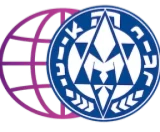By: Mia Rapp, Rosh Chinuch Israel HaTzeira B’Argentina
During the history of the Jewish people, great tragedies, losses, disasters and significant
injuries have occurred. It is interesting seeing how our people have, alongside many
occasions of celebration and gratitude, moments of sadness accompanied by introspection
and reflection.
Tisha B’Av is one of the moments during the year in which we remember not one, but
several adversities: the destruction of the first and second Temple, the deportations from
the Warsaw Ghetto to Treblinka, and more recently, the attack on the Jewish Community
Center (AMIA) in Buenos Aires, among other examples that occurred on this date.
From the dawn of their history, the Jewish people have managed to overcome (sometimes
rapidly and, in others, less quickly) the most difficult situations. They have had relapses,
internal conflicts, persecutions and betrayals. Yet they have managed to move forward
from each one of these situations, through perseverance, self-reflection and memory.
However, focusing solely on the idea that the Jewish people have managed to overcome
the difficulties and move forward means staying only with the idea that fills us with hope.
Instead, by looking deeper, we can understand that this was achieved thanks to the Jewish
people’s ability to reflect, analyze their actions and profoundly review every mistake,
every bit of sadness and every moment of joy – dedicating a moment for introspection,
even though this is what, sometimes, scares us the most.
“Those who do not remember their past are condemned to repeat it.”
Year after year, we teach in our tnuot how to transmit the values that we learn and
extract from the stories of Judaism. Year after year, we are responsible for showing how
the Jewish people overcame the difficulties and how we are the ones responsible for
remembering so that these sad events will never happen again.
But why do I believe that these values of “perseverance”, “following one’s ideals”, “not
giving up”, “fighting for what you want” and, most importantly, “reflecting” are so
important? Do not the Jewish people represent what we long for in our lives? Are not we
responsible for transmitting these values, but also applying them in the most complicated
moments of oneself? I think we are. The history of the Jewish people can be analyzed
from a perspective which allows us to compare it with our own journey, with the
perspective of a person who, during his/her life, goes through great moments of
happiness, euphoria and easy paths but also through moments of unhappiness, difficulties
and challenges.
As young people who are on the way of shaping our identity, of becoming adults, of
overcoming crisis and growing up, we often find ourselves confused and lost. In many
occasions, we have no hope or think that we are not strong enough.
And that is where two key factors emerge and give us a push. On the one hand, Judaism
teaches us that we are able to get out of the most challenging crossroads by reflecting,
learning from our mistakes and remembering our actions and history. On the other hand,
the tnua shows us the strength that we youths have to achieve our goals, our ideals. It also
shows us the ability we have to educate, transmit and create a framework full of values
and carry on our shoulders our tnuot with the aspirations of building a better world.
In conclusion, we, similar to the Jewish people throughout history, are able to overcome
any adversity. But, for that, we must commit to amend ourselves and not fear the internal
search and analysis to find the aspects we need to change. On the other hand, the tnua
shows us the potential each one of us has to achieve our dreams and objectives, to rise
from our falls, to become better people day by day and act for a world with fewer conflicts
and less intolerance, and for more respect, diversity and peace.










